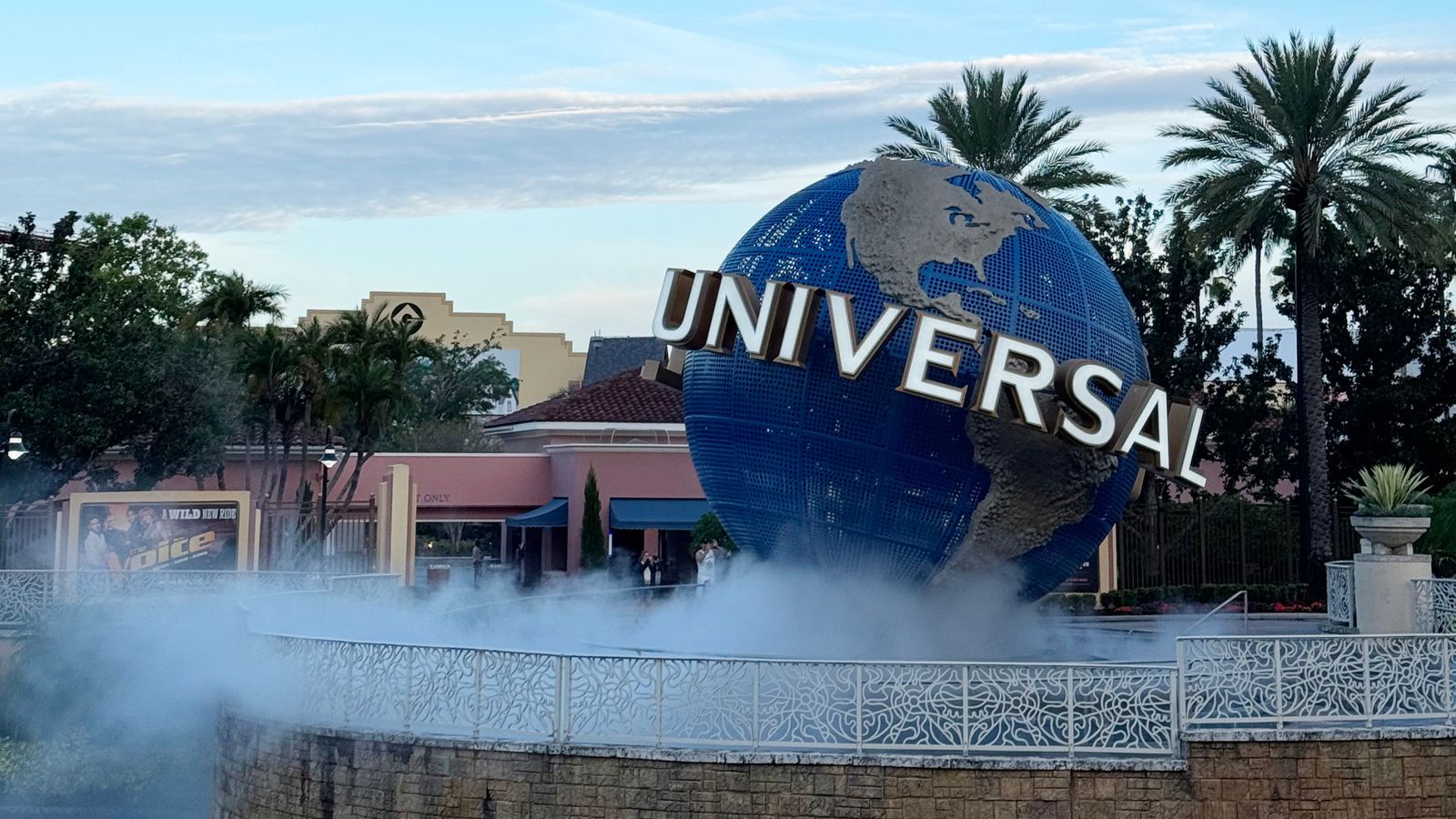Universal has theme parks in Florida, California, Japan, China, and Singapore, and is considering adding a European destination to its portfolio: Bedford, England.
By Tom Acres, Technology reporter @tomiyacres
The prospect of a Universal theme park opening in the UK has got fans very excited indeed.
After financial records and public documents suggesting something was afoot were found by industry news site Orlando Park Stop, the company confirmed the plans in a statement to Sky News.
Universal Destinations & Experiences – which, like Sky, is owned by US company Comcast – said it had acquired land in Bedford and was “at the early stages of exploring its feasibility for a potential park and resort at this site”.
Let’s have a look at what could be in the works.
Why would Universal come to the UK?
The UK can certainly put on a good summer, but its theme parks mostly stay shut during the autumn and winter as nights grow long and the weather takes a turn.
But the likes of Legoland, Thorpe Park, Chessington, and Alton Towers are still popular, drawing millions of visitors every year and giving Brits the perfect opportunity to enjoy one of our favourite past times: standing in queues.
Add in the success of similar attractions like the Harry Potter studio tour in Hertfordshire, and it’s easy to see why Universal would be eyeing up the UK.
More than half of the country’s population live within two hours of the Bedford site, which is 45 minutes from London and easily accessible from Luton airport.
Universal has been expanding aggressively since the pandemic, with fresh attractions at its long-popular US and Japanese destinations, a whole new park in Beijing in 2021, and another in Florida in 2025.
What should we expect based on its other parks?
Given this would be its first park in the UK, it would likely be a full-scale Universal.
They typically host a mix of high-speed outdoor rollercoasters and more immersive dark rides.
Beijing may be a good point of reference, as more of the attractions are indoors due to weather concerns.
That park and Japan’s also show how Universal looks to cater to specific markets with its ride choices. The former heavily features the Kung-Fu Panda films, while the latter has a large Nintendo area.
It begs the question as to what franchises and characters might be picked for a British audience.
Well, what might we get?
Harry Potter seems an obvious choice given its British roots and popularity at Universal’s Hollywood, Florida, and Japan parks, though the Hertfordshire tour may make things more complicated.
The outlet that broke news of the UK park, Orlando Park Stop, suggests Paddington and James Bond may get their own attractions (Universal did distribute the last 007 film, No Time To Die).
There have also been long-standing rumours in the industry that Universal wants – and may already have – the theme park rights for Lord Of The Rings.
It could make the UK a fitting home, given season two of Amazon’s TV show is being filmed here.
It might also be worth looking at the ill-fated London Resort theme park project in north Kent, which was first announced over a decade ago and has never come to fruition.
That was being billed as the UK’s answer to Universal and Disneyland, boasting rides based on UK pop culture like Doctor Who and Wallace And Gromit. Maybe Universal could pick up the pieces?
When will it arrive?
Universal has said “it will be many months before we are ready to make a decision to proceed”, let alone get permission and start work.
The studio also has several irons in the fire already.
The 2025 Florida project, dubbed Epic Universe, is set to be its largest theme park yet. It’s also working on smaller locations for Texas and Las Vegas for beyond that date.
Should the UK park happen, its likely scale means we probably won’t see anything built until the late 2020s or 2030.

Robert Johnson is a UK-based business writer specializing in finance and entrepreneurship. With an eye for market trends and a keen interest in the corporate world, he offers readers valuable insights into business developments.








